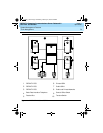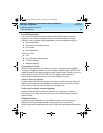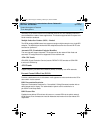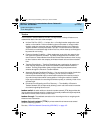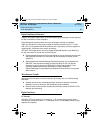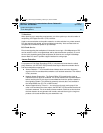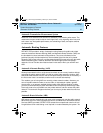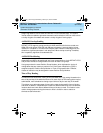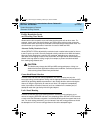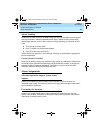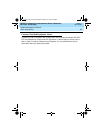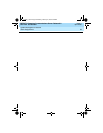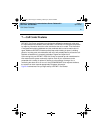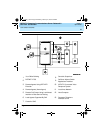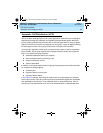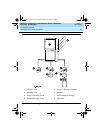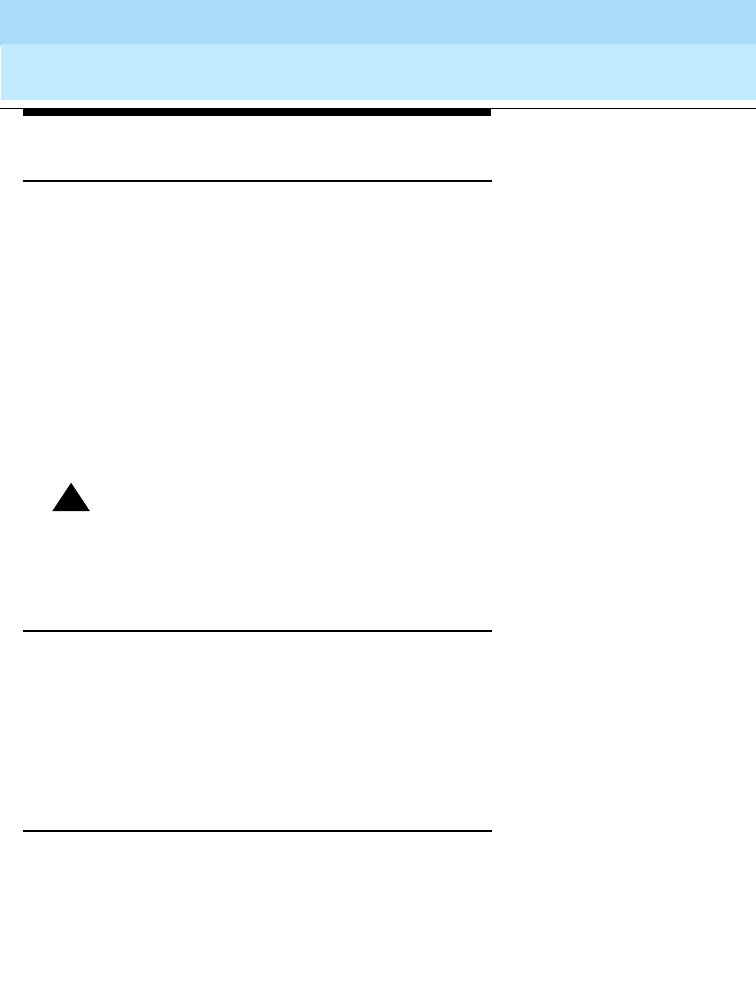
DEFINITY Enterprise Communications Server Release 8.2
Overview
555-233-002
Issue 1
April 2000
System Management Features
87
Automatic Routing Features
Facility Restriction Levels
and Traveling Class Marks
Allows certain calls to specific users, while denying the same calls to other users. For
example, certain users may be allowed to use Central Office trunks to other corporate
locations while other users may be restricted to less expensive private-network lines. You
can administer up to eight levels of restriction for users of AAR and ARS.
Alternate Facility Restriction Levels
Allows DEFINITY ECS to adjust facility restriction levels or authorization codes for lines or
trunks. Each line or trunk is normally assigned a facility restriction level. With this feature,
Alternate Facility Restriction Levels are also assigned. Attendants can change to the
alternates, thus changing access to lines and trunks. You might want to use this feature to
disable most long-distance calling at night, for example, to prevent unauthorized staff
from making long-distance calls.
!
CAUTION:
This feature may change the AAR and ARS routing preferences. Using it on
tandem and tie-trunk applications affects entire networks. Calls that are part of a
cross-country private network may be blocked.
Generalized Route Selection
Provides voice and data call-routing capabilities. You use it to select not only the
least-cost routing, but also optimal routing over the appropriate facilities. It enhances AAR
and ARS by providing additional parameters in the routing decision and maximizing the
chance of using the right facility to route the call. Also, if an endpoint incompatibility
exists, it provides a conversion resource (such as a modem from a modem pool) to
attempt to match the right facility with the right endpoint.
Look-Ahead Routing
Provides an efficient way to use trunking facilities. It allows you to continue to try to
reroute an outgoing ISDN-PRI call that is not completing. When DEFINITY ECS receives
a cause value that indicates congestion, Look-Ahead Routing tells the system what to do
next. For each routing preference, you can indicate if the next routing-preference should
be attempted or if the current routing-preference should be attempted again.
233002_1.book Page 87 Monday, February 21, 2000 8:28 AM



